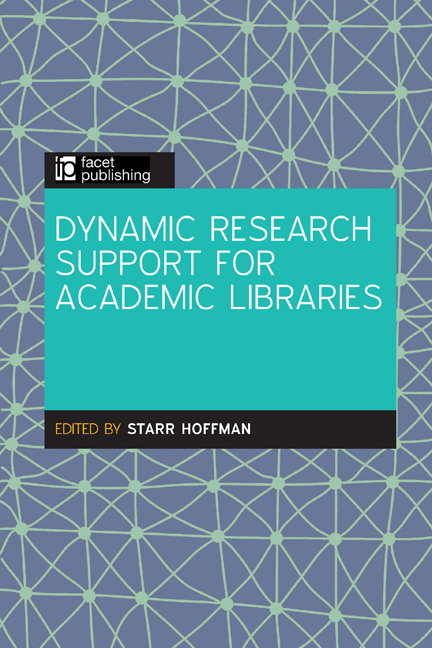Book contents
- Frontmatter
- Contents
- Editor and contributors
- Preface
- Introduction: a vision for supporting research
- PART 1 TRAINING AND INFRASTRUCTURE
- Introduction to Part 1
- 1 Constructing a model for Mexican libraries in the 21st century
- 2 Researching illustrated books in art history: a brief history of the Biblioteca Digital Ovidiana project
- 3 The ‘Developing Librarian’ digital scholarship pilot training project
- PART 2 DATA SERVICES AND DATA LITERACY
- PART 3 RESEARCH AS A CONVERSATION
- Index
2 - Researching illustrated books in art history: a brief history of the Biblioteca Digital Ovidiana project
from PART 1 - TRAINING AND INFRASTRUCTURE
Published online by Cambridge University Press: 08 June 2018
- Frontmatter
- Contents
- Editor and contributors
- Preface
- Introduction: a vision for supporting research
- PART 1 TRAINING AND INFRASTRUCTURE
- Introduction to Part 1
- 1 Constructing a model for Mexican libraries in the 21st century
- 2 Researching illustrated books in art history: a brief history of the Biblioteca Digital Ovidiana project
- 3 The ‘Developing Librarian’ digital scholarship pilot training project
- PART 2 DATA SERVICES AND DATA LITERACY
- PART 3 RESEARCH AS A CONVERSATION
- Index
Summary
Introduction
This chapter presents an example of a digital humanities research project created by faculty using an academic library collection. This project was developed using the Rare Books and Special Collections of Biblioteca Xeral (the main library of the University of Santiago de Compostela, Spain) to enhance art history scholarship.
Project development
When looking for a research topic in the field of art history, I discovered the rich collection of ancient and rare books of the University Library of the University of Santiago de Compostela (USC) where I am faculty. Among the library's large collection of illustrated books, two illustrated editions of the Metamorphoses of the Roman poet Ovid printed in Spain in the 16th century caught my attention. These two editions constituted the first objects of study and analysis, and furthermore inspired the resulting project, a study of all illustrated editions of Ovidian works (of which the USC library had a substantial collection).
Funding from the Spanish Ministry of Culture made it possible to organize a multidisciplinary research team with faculty and graduate students in the fields of art history, Latin philology and computer science from several Spanish universities (Universidad Autónoma de Barcelona, Universidad de León, Universidad de Cáceres and Universidad Pontificia de Salamanca en Madrid). The project spread from the region of Galicia (where USC is located) to Catalonia, involving three additional university libraries (Universidad de Barcelona, Universidad Pompeu Fabra in Barcelona and Universidad de Lérida). The project then spread further to the regions of Castile, León,and Madrid, providing access to prominent ancient collections at the three oldest universities in Spain: Salamanca, Complutense de Madrid and Valladolid. These various university libraries have been involved in supporting our work since 2007 when the project first began. Each library had different policies regarding the use and digitization of rare books, but overall each library's staff view OvidiusPictus (the website for the final research product) as a gateway to their collections and an additional way to share a rich Spanish bibliographic heritage.
- Type
- Chapter
- Information
- Dynamic Research Support for Academic Libraries , pp. 21 - 32Publisher: FacetPrint publication year: 2016
- 1
- Cited by

